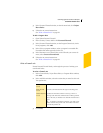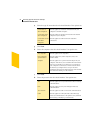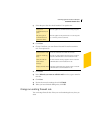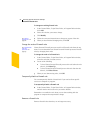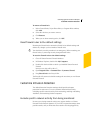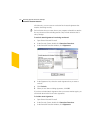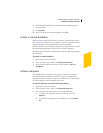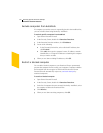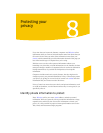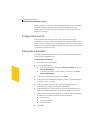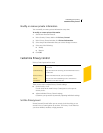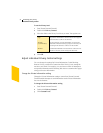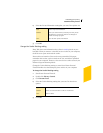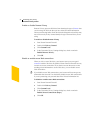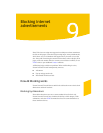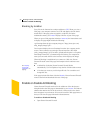
Protecting your
privacy
Every time that you browse the Internet, computers and Web sites collect
information about you. Some of this information comes from forms that you
fill out and choices that you make. Other information comes from your
browser, which automatically provides information about the Web page you
last visited and the type of computer that you’re using.
Malicious users can also collect personal information without your
knowledge. Any time that you send information over the Internet, the data
must pass through a number of computers before it reaches its destination.
During transmission, it’s possible for third parties to intercept this
information.
Computers include some basic security features, but they might not be
enough to protect your personal information. Privacy Control helps protect
your privacy by giving you several levels of control over cookies and other
information that your browser sends to Web sites.
Privacy Control can ensure that users don’t send private information, such
as credit card numbers, over the Internet unless they are encrypted, or you
specifically allow it.
Identify private information to protect
Many Web sites ask for your name, email address, and other personal
information. While it is generally safe to provide this information to large,
reputable sites, malicious sites can use this information to invade your
privacy. It is also possible for people to intercept information sent via the
Web, email, and instant messenger programs.



